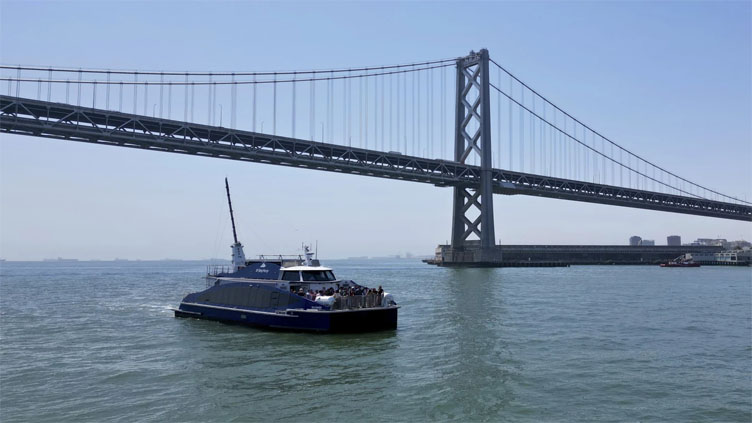San Francisco Launches World's First Hydrogen-Powered Passenger Ferry
Key Ideas
- The MV Sea Change, a hydrogen-powered passenger ferry, will operate on San Francisco Bay, reducing carbon emissions and showcasing the potential of hydrogen technology.
- The ferry can travel 300 nautical miles and run for 16 hours before needing to refuel, utilizing fuel cells that produce electricity through an environmentally friendly process.
- The initiative aims to clean up the shipping industry, which contributes significantly to global greenhouse gas emissions, and demonstrates the potential of hydrogen fuel cells for future maritime transportation.
- Despite concerns about current hydrogen production methods, proponents believe that as renewable energy sources like wind and solar power become more widespread, hydrogen production will become cleaner and more cost-effective.
The world's first hydrogen-powered commercial passenger ferry, the MV Sea Change, is set to operate on San Francisco Bay. The 70-foot catamaran will carry up to 75 passengers along the city's waterfront, offering a glimpse into the future of clean energy transportation. The ferry, powered by hydrogen fuel cells, can travel 300 nautical miles and run for 16 hours before needing to refuel, emitting only water as a byproduct. This initiative aims to reduce carbon emissions in the shipping industry, which is a significant contributor to global greenhouse gas emissions. The use of hydrogen technology in maritime transportation showcases the potential for a cleaner, more sustainable future. While there are concerns about the current methods of hydrogen production, proponents believe that as renewable energy sources like wind and solar power become more prevalent, hydrogen production will become environmentally safer and more cost-effective. The Sea Change project, managed by SWITCH Maritime and constructed in California and Washington, represents a significant step towards a greener shipping industry and highlights the importance of investing in clean energy solutions for a more sustainable future.
Topics
Maritime
Renewable Energy
Environmental Impact
Clean Energy
Shipping Industry
Greenhouse Gas Emissions
Passenger Ferry
Latest News
